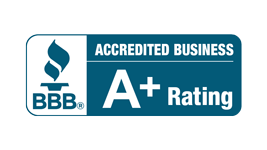Thinking of filing for bankruptcy, but worried about losing your home?
Can I Keep My House in Ohio and File Bankruptcy?
File bankruptcy, but it will not automatically protect your house from foreclosure. Your mortgage lender has the right to initiate foreclosure proceedings if you fall behind on your payments. Filing for bankruptcy, however, activates an “automatic stay,” which halts all collection activities, including foreclosure. This provides temporary relief while you work on a repayment plan or seek other alternatives to save your home.
Saving your home during bankruptcy requires careful consideration and planning. Seek the advice of an experienced bankruptcy attorney who can guide you through the process and help protect your most valuable asset. They can assist you in determining the best course of action based on your individual situation, whether it’s Chapter 7 or Chapter 13 bankruptcy.
Maintaining open communication with your bankruptcy attorney, mortgage lender, and other creditors is vital during this process. By taking proactive steps, staying informed, and seeking legal advice, you can increase your chances of keeping your house while filing for bankruptcy in Akron, Ohio.
Keeping Your House in Chapter 7 Bankruptcy
Ohio state law offers exemptions that cover the equity in your home. Equity refers to the value of your home minus any outstanding mortgage or liens. If the equity in your home falls within the exemption limits, you can usually keep your house.
These exemptions can vary depending on factors such as your marital status, age, and disability status, among others. Consult with an experienced bankruptcy attorney to determine whether Chapter 7 bankruptcy is the right option for you and to understand the specific exemptions that apply in your case.
It’s important to note that if there is significant equity in your home that exceeds the exemption limits, you may be required to sell your home to repay your creditors.
Keep in mind that while filing for bankruptcy can provide temporary relief by activating an “automatic stay” that halts foreclosure proceedings, it does not guarantee long-term protection for your home.
Just over 288,000 Americans filed Chapter 7 personal bankruptcy in 2021, accounting for roughly 70% of all personal bankruptcies. [1]

Keeping Your House in Chapter 13 Bankruptcy
Chapter 13 bankruptcy, also known as a wage earner’s plan, allows individuals with a regular income to create a repayment plan that spans three to five years. This plan enables you to catch up on missed mortgage payments and other secured debts, while also addressing unsecured debts such as credit card bills and medical expenses.
One of the primary advantages of Chapter 13 bankruptcy is the ability to halt foreclosure proceedings and potentially save your home. The moment you file for bankruptcy, an automatic stay is activated, which puts a temporary pause on any foreclosure actions. [2]
This stay provides time to work out a realistic repayment plan with your creditors, allowing you to catch up on missed mortgage payments throughout the plan.
To qualify for Chapter 13 bankruptcy, you must have a regular income that is sufficient to cover your living expenses and make the monthly payments required by the plan. The specifics of the plan are determined by your income, expenses, and the types of debts you have.
A bankruptcy trustee will review your proposed plan, and if approved by the court, you will make a single monthly payment to the trustee, who will distribute the funds among your creditors.
While Chapter 13 allows you to keep your house, it’s important to note that you must continue making your regular mortgage payments throughout the bankruptcy process. Falling behind on mortgage payments during this time can still result in foreclosure, despite the automatic stay.
Not all mortgages are eligible for restructuring under Chapter 13 bankruptcy. If you have a second mortgage or a home equity loan, it may be possible to strip these liens and treat them as unsecured debts, meaning they are paid back or discharged as part of the repayment plan. This can significantly reduce your overall debt burden.
When Should I Worry About Losing My Home in Bankruptcy?
-
Delinquent mortgage payments:
If you are significantly behind on your mortgage payments and unable to catch up, your lender may initiate foreclosure proceedings. Falling behind on mortgage payments can increase the risk of losing your home during bankruptcy. Address any delinquencies before considering bankruptcy or explore options to catch up on the missed payments. -
Lack of equity:
If you have little to no equity in your home, it may be at a higher risk of being sold in a Chapter 7 bankruptcy. Consulting with a bankruptcy attorney will help determine if your equity exceeds the allowed exemption limit and what steps you can take to safeguard your home. -
Chapter 7 bankruptcy and reaffirmation:
In a Chapter 7 bankruptcy, you may need to reaffirm your mortgage debt to keep your house. Reaffirmation means you agree to continue making regular mortgage payments. If you are unable to reaffirm the debt, your lender can potentially proceed with foreclosure. This is particularly concerning if you have missed payments or have other factors that could impact your ability to reaffirm the debt. -
Lack of income or reduced income:
If you have experienced a significant reduction in income or are currently unemployed, it may be more challenging to maintain regular mortgage payments during bankruptcy. It's important to evaluate your financial situation thoroughly and consider whether you can afford to keep your home in light of your income level and other expenses. -
Other liens or debts secured by your home:
If you have additional liens or debts secured by your home, such as a second mortgage or home equity loan, these may complicate the bankruptcy proceedings. Lien holders have the right to pursue their claims when they are not paid.

Talk to the Bank Before Losing Your Home
Start by explaining your situation and the financial difficulties you’re facing. Be transparent about your current income, expenses, and any changes in your circumstances that may have contributed to your inability to make timely payments. The more information you provide, the more your lender can understand your situation and offer potential solutions.
One option that may be available is a loan modification. This involves renegotiating the terms of your current mortgage to make it more affordable. Your lender may be willing to reduce the interest rate, extend the repayment term, or even forgive a portion of the principal balance. This can result in lower monthly payments that are easier for you to manage.
Another option to explore is a forbearance agreement. This allows you to temporarily suspend or reduce your mortgage payments for a period of time while you get back on your feet financially. Once your financial situation improves, you can resume making regular payments or work out a plan with your lender to repay the missed payments over a specified period.
If these options are not feasible, your lender may consider a short sale. This involves selling your home for less than the outstanding mortgage balance. While this means you will lose your home, it can help you avoid foreclosure and minimize the impact on your credit score.
Foreclosure Bankruptcy Attorney
A foreclosure bankruptcy attorney specializes in helping homeowners understand the bankruptcy process and how it can save their homes. They have extensive knowledge of both foreclosure and bankruptcy laws, allowing them to develop effective strategies to protect your rights and assets.
They can advocate on your behalf to halt foreclosure proceedings, buy you some extra time, and work towards a solution that can help you keep your home.
During your initial consultation with an experienced attorney, they will review your financial situation in detail. They will assess your income, debts, and assets to determine if bankruptcy is a viable option for you. Depending on your circumstances, they may suggest filing for either Chapter 7 or Chapter 13 bankruptcy.
They will handle all the necessary paperwork, filings, and communication with the bankruptcy trustee and your creditors. Their expertise ensures that your bankruptcy filing is accurate and compliant with all legal requirements.
Foreclosure bankruptcy lawyers can also provide advice on alternatives to bankruptcy. They can explore loan modifications, and forbearance agreements, or negotiate with your lender to find a solution that suits your financial situation.

We understand how important your home is to you, which is why we want to ensure that you are aware of the possibility of keeping it even during bankruptcy.
Contact Richard West today to schedule a consultation and explore the options available to you.
FAQ's
The impact of bankruptcy on your house depends on several factors, including the type of bankruptcy you file, the equity in your home, your mortgage payment history, and your ability to continue making mortgage payments.
Seek professional advice from a bankruptcy attorney to assess your individual situation. They can provide personalized guidance based on your specific circumstances, help you understand your options, and assist you in developing a strategy to protect your home during bankruptcy.
There may be options available to help you keep your home depending on your particular financial circumstances and the type of bankruptcy you file.
Both Chapter 7 and Chapter 13 bankruptcies offer potential avenues to keep your house, but the specific circumstances of your financial situation will determine which option is more appropriate for your situation.
Chapter 7 Bankruptcy:
- If you are current on your mortgage payments and have little to no equity in your home, you may be able to keep your house by reaffirming the mortgage debt.
- If you have significant equity in your home, it may be subject to the bankruptcy trustee's ability to sell it to pay off creditors. Each state sets exemptions that may protect your home equity, and consulting a bankruptcy attorney can help assess whether Chapter 7 is viable for keeping your house.
Chapter 13 Bankruptcy:
- Chapter 13 is designed to reorganize your debts and create a repayment plan, which may allow you to catch up on past-due mortgage payments over a specified period, typically three to five years.
- If you have a second mortgage or home equity loan and your home's value is less than the outstanding balance on the first mortgage, Chapter 13 may offer the opportunity to "strip" additional liens to make them unsecured debts, potentially preserving your home.
Both Chapter 7 and Chapter 13 bankruptcies may offer the potential to keep your house, but the specific details of your financial circumstances will determine the most suitable option.
As of 2022, the homestead exemption in Ohio allows homeowners to exempt up to $145,425 in equity in their primary residence for individuals filing for bankruptcy. For married couples jointly filing for bankruptcy, the exemption doubles to $290,850.
This means that if the equity in your home is less than the exempt amount, you can generally protect your home from being sold to pay off creditors in a Chapter 7 bankruptcy, subject to the specific provisions of Ohio bankruptcy laws. Any equity in your home above the exemption limit may be at risk of being used to satisfy your debts under Chapter 7 bankruptcy.
Consult with a qualified bankruptcy attorney in Ohio to understand the specific exemptions and how they apply to your individual circumstances before proceeding with a bankruptcy filing. An attorney can provide tailored guidance based on your financial situation and help you understand how much equity in your home you can protect in a bankruptcy.
Sources:
[1] Caporal, J. (2023, January 5). Chapter 7 Bankruptcy and Chapter 13 Bankruptcy Statistics. The Motley Fool. https://www.fool.com/the-ascent/research/personal-bankruptcy-statistics/
[2] Graham, K. (n.d.). How Does Bankruptcy Affect Your Mortgage? Rocket Mortgage. https://www.rocketmortgage.com/learn/how-bankruptcy-affects-mortgages




